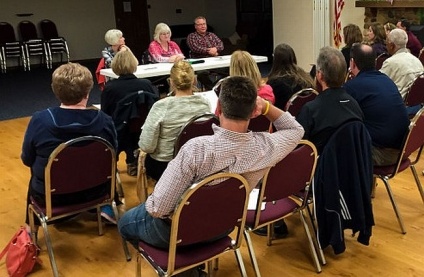Living in a homeowner association, there is likelihood of running into someone that is, how should we say it, less than happy. We all have to deal with difficult people at some point. Some focus on what they don’t like about a person (loudmouth, condescending tone, etc) and then hope they will change. Not surprisingly, this rarely creates the change we desire.
For many, personal experience with conflict creates a recurring cycle. This cycle can be positive or negative depending on the beliefs about conflict that we developed at an early age. What someone says or does can spark an automatic response based on those beliefs. This, in turn, triggers a consequence that usually reinforces our behavior pattern.
The key to dealing with a difficult person is to change your relationship with that person by:
- Taking the responsibility to examine your own thoughts and feelings about the difficult person.
- Understanding what kind of relationship you would like to have with the difficult person.
- Taking notice of the behavior rather than making assumptions about what that behavior means, and
- Examining your approach to communicating with that person.
The next time you are confronted by a difficult person, what do you see them doing that causes you to react negatively? Consider the following:
- Facial expressions
- Eye contact or lack of eye contact
- Gestures
- Tone of their voice
- Screaming or whining
- Words and/or the meaning of the words
Pay close attention to their behavior patterns. What is working and what is not? Have you made assumptions about what these actions mean?
Next, pay attention to your behavior. What is working and what is not? What do others do that works better? If you don’t set aside your assumptions, you may never realize what are you are responding to.
Now, take the time to consider how your actions may affect the other person. Consider the message you may be sending them. Finally, decide what you would like the relationship to be and make a plan that will move you toward that goal. What do you want them to understand? How will you present yourself? What will you say?
Treat every interaction with a difficult person as an opportunity to improve your relationship. Allow yourself to see the larger patterns of behavior, both theirs and yours. Imagine yourself to be a third party observing your interactions with the difficult person. If your approach to conflict isn’t working, exchange it for one that will move you toward a better relationship.
For more innovative homeowner association management strategies, see www.Regenesis.net.



